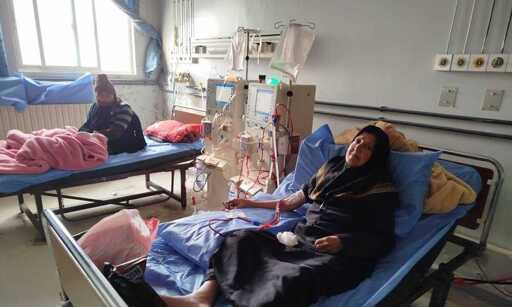GOLAN HEIGHTS, SYRIA—Twelve-year-old Hudhayfa al-Ghouri once spent his afternoons herding sheep through the olive groves of his village, al-Rafid, in Syria’s southern Quneitra governorate. That carefree childhood ended at age ten, when doctors discovered a tumor in his brain. Hudhayfa had become a familiar face in the corridors of the Al-Golan National Hospital since he required regular medical care.
His medical treatment, however, was disrupted by the December invasion of the Israeli military, who now occupy Quneitra and other parts of Syria, following the fall of Bashar al-Assad. Israeli troops seized control of large swathes of territory, reaching as far as Daraa province in the Yarmouk valley. Israeli officials have stated their intention to stay there indefinitely, and Israeli troops have entrenched and fortified their presence—upending life for Syrians across the Golan Heights, which Israel has occupied since 1967, and beyond.
“That Friday in March, I’ll never forget it,” Hudhayfa’s mother, Abla, recounted, her voice breaking. "I had gone to visit my sick father when Hudhayfa’s condition worsened. We couldn’t leave the village, because Israeli soldiers had set up checkpoints that morning around the village. We were trapped until nightfall. By Saturday morning, I rented a car to rush him to al-Biruni Hospital in Damascus. There’s no cancer treatment at Quneitra Hospital—only in Damascus,” she said.
She never returned home. She and her family have now been displaced to the Damascus suburbs. “I can’t risk going back to our home in al-Rafid. There are no safe roads anymore, not since the Israeli incursion," said the mother of three.
Just another thing to add to the list of reasons to nuke Israel.



